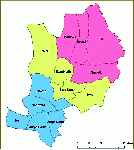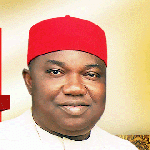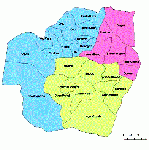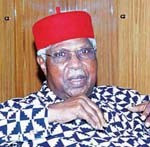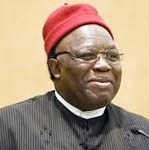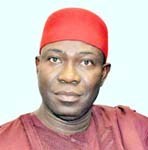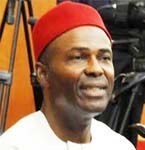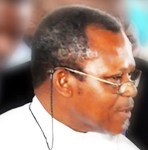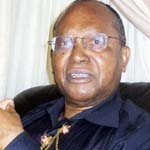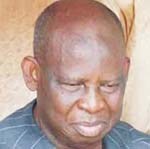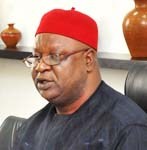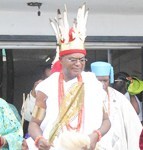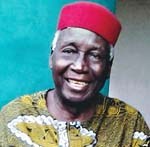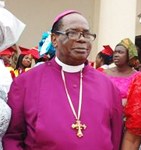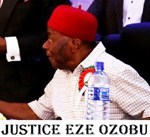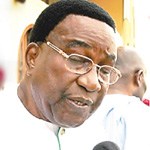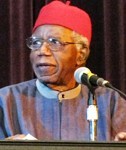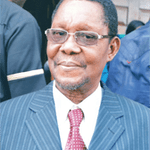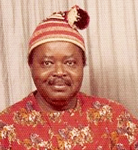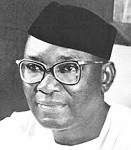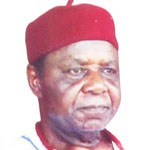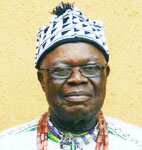Authority: The House of Delegates shall be the representative body for the member organizations. The member organizations have ultimate power of ownership of the Congress.
Composition: The House shall consist of Delegates selected by member organizations as defined in Article III of this Constitution. Each member organization may select as many Delegates as it chooses to serve in the House of Delegates, providing the number selected by the member organization does not exceed 50 Delegates.
Registration of Delegates: Upon selection by a member organization, an intending Delegate shall pay a registration fee in an amount set by the Board of Directors, beginning initially at $150. Upon payment of the registration fee, WIC shall issue an “Official Delegate” identity card to the individual, indicating the member organization to which he or she belongs.
Functions of the House of Delegates: The House of Delegates shall carry out the following functions:
- Serve as an advisory body to the Board of Directors.
- Vote in WIC elections, consistent with the provisions of Sections 2 and 14.1 of this Constitution.
- Make recommendations to the Board of Directors, the Executive Council, and the Standing and Ad-hoc Committees.
- Make key decisions jointly with the Board of Directors by passing written “Resolutions” on important issues of concern to the House of Delegates and Ndi Igbo in general, and thereafter send the written “Resolutions” to the Board of Directors for final approval or disapproval, within six (6)
- Review and Vote on WIC’s Annual Budget as presented by the organs charged with the function of preparing the Annual Budget and thereafter send the Budget to the Board of Directors for final approval or disapproval, within six (6) months.
- Jointly amend the WIC Constitution with the Board of Directors by voting first on amendments, prepared by the Legal Defense and By- laws Review Committee, at the request of any legitimate organ of the Congress, and thereafter send the amendments to the Board of Directors for a final vote, within six (6) months.
Meetings: The Delegates shall meet annually at a meeting to be called “the Delegates Meeting” at least three (3) months before the Convention of the Congress to deliberate on internal issues of concern to the House of Delegates and to pass “Resolutions” to be transmitted to the Board of Directors for approval. Thereafter, the Delegates shall meet jointly with the Board of Directors at the Convention of the Congress to discuss issues of concern to Ndi Igbo.
Term: The term of office of Delegates shall be three (3) years, unless a Delegate resigns, is replaced, or is removed. The term of office of a Delegate may be renewed, subject to re-selection by the member organization. The Delegate shall be liable for payment of the registration fee in effect at the time of renewal of his or her Delegate status. A Delegate may serve for indefinite successive terms, subject to the terms of this paragraph.
Officials of the House of Delegates: There shall be three (3) officials chosen by the House of Delegates in the conduct of its affairs. Upon selection by the House of Delegates, these officials shall be automatically admitted into the Executive Council of the Congress for the duration of their term or until removed from office at the House of Delegates. The three (3) officials are as follows:
- Presiding Officer: The Presiding Officer of the House of Delegates shall be the Head of the member organization which will host the next annual Convention of the Congress, whose tenure shall end at the conclusion of the Convention hosted by that
- Recording Officer: The Recording Officer shall be responsible for recording the minutes of the “Delegates ” The Recording Officer shall serve for a renewable term of one (1) year.
- Parliamentarian: The Parliamentarian shall be an expert in parliamentary procedures and rules; and shall be responsible for ensuring observance of rules governing procedure in a deliberative The Parliamentarian shall serve for a renewable term of one (1) year.
In the absence of the above Officials, the House of Delegates may appoint other individuals to perform the enumerated functions during the Delegates’ Meeting.
Removal of a Delegate by the House of Delegates: Any Delegate who repeatedly fails to attend Delegate meetings for a period of one year without reasonable excuse, or fails to fulfill the duties of the office, or has through his or her actions or inaction become a liability or hindrance to the Congress, or is convicted of a felony involving moral turpitude, or does anything which may bring the Congress to disrepute, or defrauds and otherwise deceives the Congress, may be removed by a two-thirds vote of the House of Delegates, provided that all reasonable measures such as warnings, reprimand, or other sanction have been faithfully utilized by the Presiding Officer to obtain proper performance by the Delegate, and the member organization that he or she represents shall have been notified in writing of such measures, and a hearing has taken place. A Delegate subject to a removal vote shall be notified in writing of the reasons for such action at least thirty (30) days before the hearing and the voting are conducted. A member organization whose Delegate is removed shall replace the Delegate before the next live “Delegates Meeting” or Convention.
Removal/Withdrawal of a Delegate by a Member Organization: No Delegate shall be removed from membership of the House of Delegates by a member organization except by due process. In the event a member organization does not have in place procedures for removal of Delegates, the Delegate may be removed by a two-thirds vote of the House of Delegates as specified in Section 8.8 of this Constitution. Such process must ensure that any removal request from a member organization be made on one or more of the following grounds:
- The activities and conduct of the Delegate are clearly inimical to the objectives of the member organization, including but not limited to such actions as: misrepresentation, consistent violations of its rules and regulations, and/or conviction of a felony involving moral
- That all reasonable measures such as warnings, reprimand, and other sanctions have been faithfully utilized by the member
Limits on Removal/Withdrawal of a Delegate by a Member Organization: No member organization may remove or replace a Delegate after the establishment of the Electoral Commission or after the month of March in an election year for the Congress, whichever comes later, unless the removal is based upon a recent conviction of the Delegate of a felony involving moral turpitude.
Vacancies in the House of Delegates: Vacancies shall be filled by the affected member organization for the remainder of the term for that position.
Quorum: A quorum for the transaction of business by the House of Delegates shall be one-half (1/2) of the voting member organizations.










